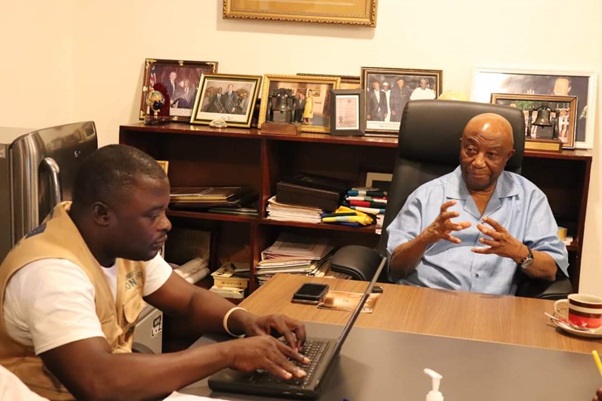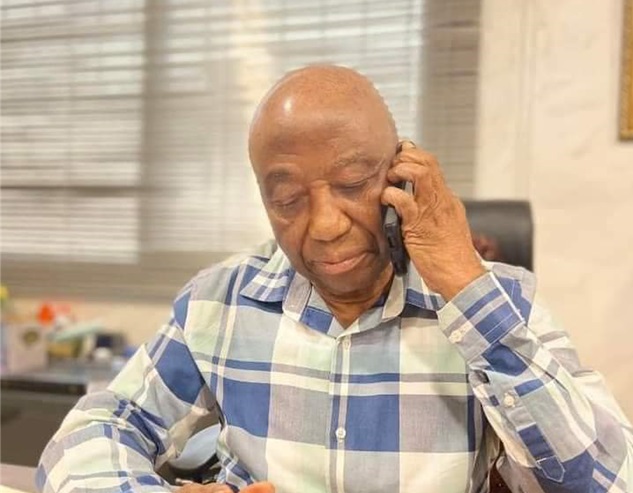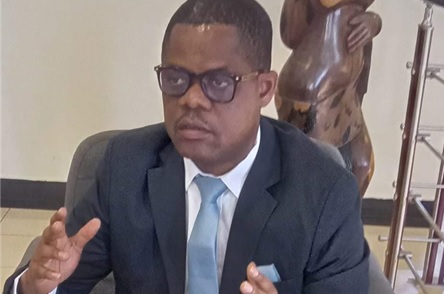By Paul M. Kanneh
The historical account of Liberia is replete with claims and counterclaims of falsehoods much to the pleasure of the storyteller. The TRC, having investigated the root causes of the Liberian civil war, recommended the rewriting of the country’s history. The TRC’s recommendation, follows by recommendations from other state’s bodies is due to the confusing nature of the Liberian history.
Except for few, most young people nowadays are made to believe that there was no habitat here until the arrival of the freed black slaves based on the way they wrote the country’s history. Of course, with the desire to impose western culture, the settlers did everything possible to write the history in their favor, which also translated into the governing system of the country with no recognition to the way of life of the people they met and even officially acquired the land from.
That is to say, for anyone to think that western secret societies and political power were given birth to on the same day as the land called Liberia, it would be an over overstatement of the fact.
Matter of fact, Liberia’s power dynamics have always been dominated and influenced by the secret few who have wielded real power from the backseat veiled by the various fraternities to which they primarily hold loyalty to instead of the country. Meant to protect its members, elements of these western fraternities have sought state’s power to ensure dominance in the social, political and economic sectors.
These power personalities and individuals have always had their way as to who occupies what positions and functions such as security, justice, finance, foreign affairs among others. Certain level of understanding and appreciation of this state of affairs requires a retrace of the country uneven history and the state’s early formation beginning in 1822; when the first settlers arrived. Among these people were, a Freemasons hailing from Negro lodges in the United States of America.
Founded in 1867, the Freemasons, whose membership consisted mainly of Americo-Liberians, was not only influential but controlled both the then ruling True Whigs party and all succeeding administrations until the Coup d’etat of Master Sgt. Samuel Doe in 1980. The coup of April 12, 1980 brought to an end the Americo-Liberians hegemony and the Freemasons dominance of the country’s political space.
Majority of the country’s high ranking officials had been members of the Freemasons from the 17 subordinate lodges, where it was popularly believed that major decisions of the state were decided. It has to be stated here for the purpose of emphasis that nearly all presidents of the Republic of Liberia have been Freemasons. A little attempt to diversify the political space was seen in the 80s when Samuel Doe, as head of state, joined the Poro Society in Lofa. But President Doe was unable to integrate the idea of the Bush School into a holistic nationalist program as was the case of the Freemasons and other western secret societies.
Until this day, the only original member of the Bush School to become President of Liberia is Amb. Joseph Nyumah Boakai. With this twist in history, Liberians are expected to see a different style of leadership that resembles their way of life as they had been taught in their various local secret societies, mainly the Bush school that prepares boys and girls for leadership.
It is no secret that majority of indigenous Liberians either belong to the Poro or Sande depending on their gender. Like its western counterpart, this school has had great influence on most indigenous Liberians way of life. With the president-elect not only being a member of the Poro Society, but the first to become head of state, local social analysts are of the conviction that JNB will uphold the values of the Poro society at the level of the Presidency. Some of the values include integrity, honesty and truth telling, a trait most former and current Liberian officials have lacked.
The bush school is widely practiced in Liberia, Sierra Leone, Guinea and Ivory Coast. Like the Freemasonry, membership in the bush school is necessary for anyone in position of authority. In enforcing traditional laws, the school educates young people, regulates sexual conduct, and concerns itself with agriculture fertility and training for self-defense.
In short, the bush school is noted as an institution for empowering people to become productive members of a wholesome functioning society. Its justice system is unique-which is why the final arbiter of justice, the Grandmaster has its face covered like the statue at the Temple of Justice-justice knows no one.
People knowledgeable about the bush school say Liberia is poised to witness a cultural and traditional rebirth that may positively impact the strange culture of violence, drugs and lawlessness; which seem to be overwhelming in present day realities.
In addition, they say that people should reflect and be reminded of the Sirleaf’s administration in which some of her key officials, who were members of the Bush school, diligently served the country and were never caught in corruption as well as other kinds of abuses associated with power.
Jesefu Morris Keita contributed to this article.







